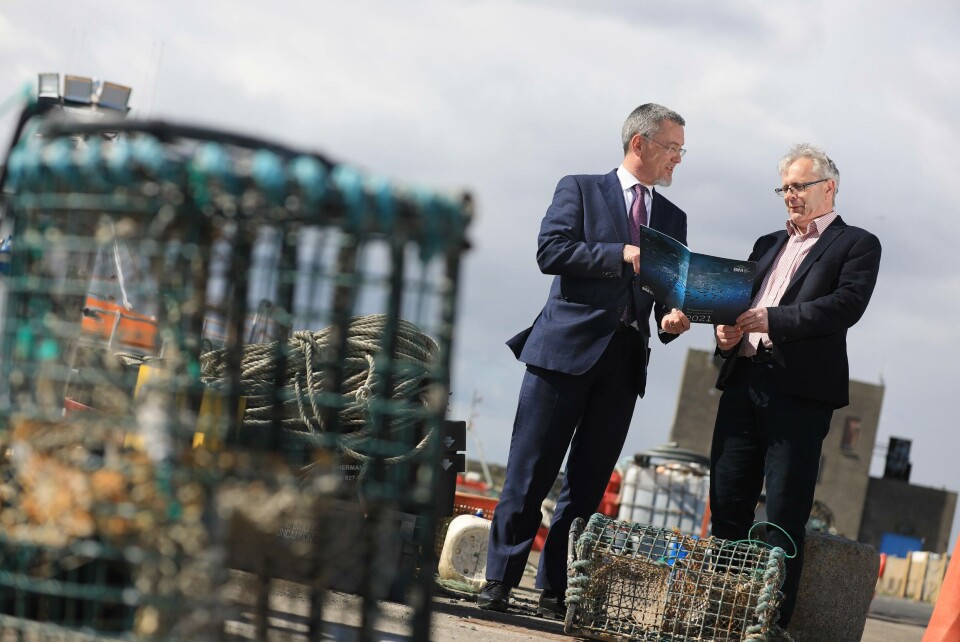
Fresh competition reduced value of Irish salmon in 2021
The volume of Irish farmed organic salmon remained stable in 2021, but its value decreased by 14% due to increased international supply of organic salmon by competitor countries such as Norway and Scotland, Ireland’s seafood development agency Bord Iascaigh Mhara (BIM) said in a report today.
Virtually all salmon produced in Ireland is organic and produced by Mowi, which also grows organic fish in Scotland, where Skye-based Organic Sea Harvest has recently added to the country’s organic salmon output.
Cooke Aquaculture is Scotland’s biggest organic producer, with 10 organic sites in Orkney and plans for an 11th with a maximum production biomass per 22-month cycle of 3,751 tonnes.
15% growth
Although salmon income was down in Ireland last year, the Irish seafood economy grew by 15% to €1.26 billion (£1.05 bn), according to the BIM’s annual Business of Seafood report.
Growth was driven by strong exports to the EU and Asia, increasing the total value by 11% to €674m.
Food service purchases of seafood in Ireland showed a partial recovery, increasing by 12% in 2021, following from a decline of 53% in 2020.
Domestic consumption grew by 3% to €418 million, while the seafood balance of trade (exports – imports) also grew by 45%, driven by the strong export growth, particularly in EU markets. Overall investment in the sector increased during 2021 to €454 million (+8%), showing renewed confidence.
BIM chief executive Jim O’Toole said: “The key insights from this report are the sector’s success in both identifying and driving opportunities in different markets along with an increase in value for some categories.
“While Brexit, and the additional impacts of the Trade and Cooperation Agreement [agreed between the EU and the UK] reduced quotas for key species, Government support along with private investment helped mitigate some of these impacts.
Industry adapts
“The industry continues to adapt, for example in the seafood-tech sector there are now over 50 companies employing more than 700 people from disciplines including engineering, fintech and marketing and we have seen turnover more than double in the past few years.
“Although we have seen significant growth last year there are further challenges now being encountered with cost increases for fuel, energy, and materials as a result of the conflict in Ukraine. Support to the industry to help withstand this economic shock will undoubtedly be required.”
Imports from UK down 57%
BIM said Brexit introduced a change in trading patterns. Previously the UK had been the main source of seafood imports into Ireland, but that during 2021 there was a shift away from sourcing from the UK. The EU is now the main import market for the first time, with the value of imports from the UK dropping by 57%.
Employment in the sector remained stable in 2021. A total of 16,650 people were employed directly and indirectly, an increase in overall employment of 1%. This comprised 8,700 employed directly in fisheries, aquaculture and processing, with a further 8,000 in downstream employment in ancillary and support sectors.






















































